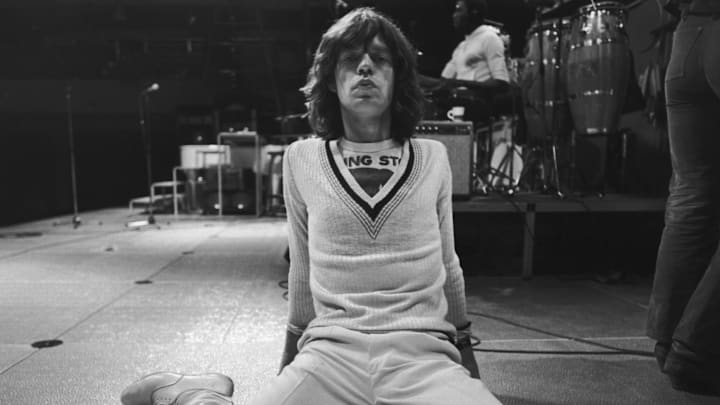The Rolling Stones are often considered one of the best rock and roll bands of all time.
That’s interesting, considering they often created music that wasn’t rock. The Rolling Stones dabbled in country, psychedelia, pop, and other genres. One of their most famous songs is “Miss You,” a foray into disco that inspired every other rock act from the late 1970s to go disco, too.
After “Miss You” came out, everyone jumped on the bandwagon. Rock acts like Rod Stewart (“Da Ya Think I’m Sexy?”), Kiss (“I Was Made for Lovin’ You”) and Queen (“Another One Bites the Dust”) had a dance music makeover.
One of the reasons why rock fans became so hostile to disco at the time was that the genre was encroaching on their turf. For all they knew, that encroachment was going to last a long time. In reality, it was just a brief fad.
Did the Rolling Stones actually go disco with "Miss You?"
But is “Miss You” even a disco song? If you really listen to it, it’s a lot different than its contemporaries. If it came out a decade earlier or a decade later, it might not even be classified as a disco song or even a dance song. That’s pretty ironic, since it’s such an important song in the history of disco.
When people think of disco, they think of pumping beats and infectious energy. The Rolling Stones were rarely that happy. “Miss You” is a melancholy track about feeling lonely and unfulfilled by sex. That’s not exactly the vibe that comes to mind when people think of Studio 54.
The Rolling Stones are, first and foremost, a blues-rock band, and “Miss You” is arguably closer to the tone and sonic texture of the average blues song than it is to “Stayin’ Alive” or “Love to Love You Baby.”
So why is this track considered disco? And why was its release so influential in the late 1970s? Well, it was closer to disco than anything the Rolling Stones had ever put out, so a lot of rock fans lumped it into that category.
If you were there at the time, and you were waiting for another “(I Can’t Get No) Satisfaction” or “Honky Tonk Women,” I’m sure it was shocking or even traumatic to hear “Miss You,” even if the Rolling Stones didn’t betray their roots with the song. Lyrically, thematically, and even sonically, it’s not really that far off from their 1960s hits.
However, their contemporaries sure saw it as a permission slip to go disco without losing your rock credibility. The slightest hint of that genre in “Miss You” was seen as the Rolling Stones crossing a picket line, and it gave a lot of rockers permission to make dance music.
It brought a lot of artists to the dance, even if it’s not much of a dance song. It’s a great track, sure - it just doesn’t have as much in common with the Bee Gees as fans seem to think.
